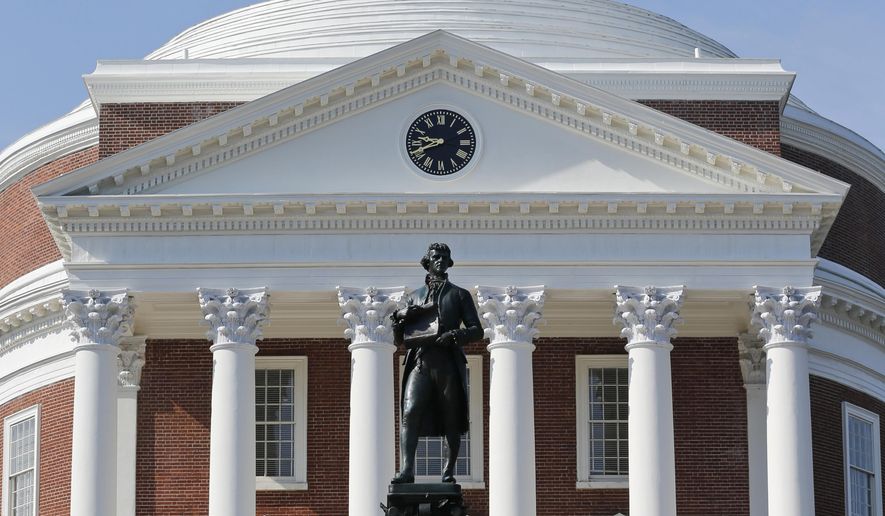Editor’s note: This is one in a series examining the Constitution and Federalist Papers in today’s America.
In a March 1789 letter to James Madison, Thomas Jefferson wrote: “The tyranny of the legislatures is the most formidable dread at present, and will be for long years. That of the executive will come in its turn, but it will be at a remote period.”
It’s obvious we have reached that remote period, and it has devolved into something even worse than Jefferson imagined.
Legislating from the presidency was not at all what our Founding Fathers had intended. James Madison wrote in Federalist No. 48, “It is agreed on all sides, that the powers properly belonging to one of the departments ought not to be directly and completely administered by either of the other departments. It is equally evident, that none of them ought to possess, directly or indirectly, an overruling influence over the others, in the administration of their respective powers.”
This sentiment is embodied and embedded in our Constitution, which establishes the legislative branch to make laws, the executive branch to carry out and enforce laws and the judicial branch to judge cases and controversies, which, in many instances, require them to interpret the meaning of laws. While all three branches have the ability to check the others, they are not able to administer powers not assigned to their respective branch.
Jefferson made this essential point about the Founders’ vision for the separation of powers and the autonomy of each of the three branches in a 1797 letter to Madison: “As to duty, the constitution will know me only as the member of a legislative body: and its principle is that of a separation of legislative, executive and judiciary functions, except in cases specified. If this principle be not expressed in direct terms, yet it is clearly the spirit of the constitution, and it ought to be so commented and acted on by every friend to free government.”
Unfortunately, in Washington and around the nation, it has now become widely accepted as the norm that the president sits atop the power dynamics in our nation’s capital and that Congress has accepted its fate as an inferior branch of the federal government.
This is, of course, contrary to the concepts of co-equal branches as well as separation of powers.
The imperial presidency that has slowly taken hold of our national governance since the early part of the previous century is directly contrary to the Founders’ vision for our national government. Our Constitution was drafted with the intent of having the legislature be the most powerful branch of government.
Enhanced executive power by osmosis, as opposed to change in laws or the Constitution, is especially troubling and something President George Washington warned against in his 1796 farewell address to the nation. With respect to the powers delegated to each branch of government, he wrote: “To preserve them must be as necessary as to institute them. If in the opinion of the people the distribution or modification of the constitutional powers be in any particular wrong, let it be corrected by an amendment in the way which the Constitution designates. But let there be no change by usurpation; for though this, in one instance, may be the instrument of good, it is the customary weapon by which free governments are destroyed.”
Washington understood that changes to the balance of power among the three branches may happen incrementally and appear harmless; however, such changes — if made by one branch seizing or otherwise gaining control of power from another without following proper constitutional process — undermine the Constitution and the integrity of our system.
A recrudescence of the framers’ vision, especially the notion of three separate and co-equal branches of government, will require members of Congress to assert themselves and their prerogatives and avoid moves such as lobbying the president for executive actions or leaving difficult issues and decisions in the hands of judges and bureaucrats. In short, it will require members of Congress to act as legislators.
• Rep. Lee Zeldin is a Republican representing New York’s 1st Congressional District and serves on the House Financial Services and Foreign Affairs committees. He is running for governor.





Please read our comment policy before commenting.